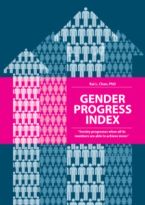
Being a minority in the West
I wish I were back in Japan. I went to the land of the rising sun this past summer to visit several friends and to explore a place that has always enchanted me. Although Murphy’s Law applied on the trip (let’s not go there), I hold no gripes against Japan; indeed, I really liked the place. Despite everything that went wrong on the trip, I gained a new perspective on being a minority in the West.
Growing up as a minority in a Western society poses many challenges. Many people often remark that minorities growing up in the West face an identity crisis. Although true for some, in my case, I would certainly say that I had no such crisis. I grew up in Toronto, Canada, and I say very proudly that Toronto is the most tolerant and diverse city in the world. It is still far from perfect, but I miss the social acceptance of Toronto now that I am living in conservative, homogeneous Princeton. Even New York City seems to be lacking something. In any case, the overt racism of the United States is something I find unsettling, although it is still more progressive here than most other places on the globe.
Despite the fact that I am a devoted proponent of multiculturalism, I must admit that I sometimes succumb to the primal urge to be in a society where I look the same as everyone else. I am ethnically Chinese, so my desire to return to Japan might seem somewhat strange at first glance. But Japan is a society that resembles the West more so than China or Hong Kong, and indeed, my cultural interests are more aligned with Japan than China. And although Japan is a racist society (just as much as any Western nation, although the Japanese animosity toward Asians is a strange phenomenon), it offers a place where I can fit in. My acceptance is at a very superficial level; after all, my social values and attitudes are distinctly Canadian. Nevertheless, Japan is a developed country in which I do not have to justify my existence at every turn of the road because, well, I look Japanese.
In the West, any time I walk in a room it seems that half the people will not give me a chance to fit in. There are always expectations placed on me as a minority. It is easy to say that we should forget about how others think about us and just be ourselves; however, this mantra is true only if we live in isolation. The truth is that we are social creatures and how the world perceives us and treats us is very important. It matters a lot because it affects our social life, our love life, where we are “allowed” to hang out – basically all facets of our life. Japan, then, is a place where I can walk inside a room and be myself. I am not instantly pigeonholed according to how society wants me to fit in.
One idea that was driven home when I was in Japan is that no matter how color-blind I personally may be, it is meaningless in the grand picture. Even as I have made great progress in unshackling my mind from the prejudices of race and ethnicity, it is not true for much of the world. Why do backpackers – who take pride in their worldliness – sort themselves according to race when they are relaxing in a hostel? Why is it that a Japanese student studying in the US is more likely to be befriended by Chinese students than by European students? Why is an Italian immigrant who has been living in the US for the last five years more socially accepted by the mainstream over a native-born kid who just happens to be non-white? As for me, I get tired of making the extra effort each day to be me. I go out of my way to socialize with everyone, to participate in a myriad of activities, but seldom are such gestures reciprocated. And frankly, it is tiring to be the one who takes the first initiative to cross boundaries.
I think life would have been much easier if I were born and raised in first-world Asia, or had I simply been white in a Western culture. But of course it is not possible for me to simply transplant myself to Japan since I neither speak Japanese, nor am culturally attuned to their ways. In any case, I am not Japanese; I am Canadian. And although social tolerance has improved, there will always be little nagging points to remind me each day that I am different – in the bad sense. Humans are visual creatures, and so long as I look different there will always be barriers. I guess someone has to add spice to an otherwise homogeneous society, so it might as well be me. In the meantime, I will continue to be a perpetual foreigner – wherever I go.
Kai L. Chan is a graduate student in economics.
The Daily Princetonian: “Being a minority in the west”
The Soap Box | Volume 1






